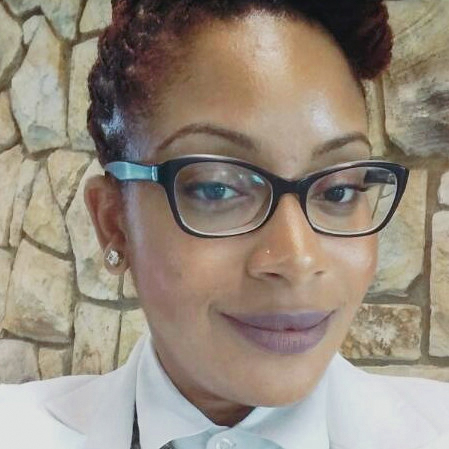
Kyra Brown had been working at Youth United for Community Action (YUCA), a social justice and environmental justice organization, when her supervisor suggested the Green Foothills Leadership Program. “Oh, hey look. Is this something you’re interested in?” she quotes. “I had never heard of the program, but when I saw the words ‘community advocates,’ I was like, ‘sure.’ I had a feeling that it was something I’d be interested in, based on the title.” And so Kyra joined the Leadership Program’s 2018 cohort.
“I gained an understanding about environmental issues that was maybe different than the way I understood them,” she says of her experience in the Leadership Program. Her earlier experience organizing with YUCA had been more confrontational, fighting toxic waste dumps or unjust tenant evictions, for example. But in the Leadership Program and in her work on the East Palo Alto Planning Commission, she learned that while some community campaigns require confrontation because the injustice is so glaring, others require a different approach when the injustice is a bit more nuanced. “There are so many complex factors involved in a development project; it’s not always as simple as ‘build somewhere else’ or ‘yes’ or ‘no.’ There are some negotiables and some nonnegotiables. The community has leverage.”
East Palo Alto residents are mostly working class, Black, Latinx, and Asian/Pacific Islander. The threat of housing displacement and gentrification is constant, as tech companies vie to build office building after office building. Because of that, Kyra has focused on a concept covered in the Leadership Program: “community benefits agreements,” things a developer agrees to do for the public, perhaps offering green space or hiring locally, in exchange for the building permits.
It’s in this urban development space that Kyra witnessed insidious ways that facilitated the displacement of East Palo Alto’s Black and Brown communities instead of bringing assets they wanted. Kyra once approached a developer with “hey, we need some open space along with your project and community access to that open space.” Condescendingly, the developer offered to plant a tree in front of their building, or build a bench in front of the building with a plaque saying, “We Love East Palo Alto.” Kyra’s reply? “Listen, a bench outside your building is not going to cut it.”
Getting a good community benefits agreement should involve asking the community. Yet when Kyra asked city staff how developers engage the community, she was told that it was entirely up to the developer. In addition, Kyra discovered that at the time, the city did not have a public and comprehensive list of upcoming developments on the city’s website, available for residents. Staff’s reply was simply, “Oh yeah, we should make that.” So Kyra fought to create a pre-application process that requires developers to map out a community engagement strategy that includes notifying the community and holding multiple community meetings before the planning commission considers a developer’s proposal.
Kyra wants community benefits agreements that prevent gentrification and displacement of current residents. For instance, increasing below-market-rate housing units which, Kyra points out, gives people “an opportunity to stay in the community.” Unfortunately, too often developers choose to pay fines rather than actually building affordable units, leading to delay and uncertainty in housing production. To this she says, “Okay City Council, it’s evident that developers are trying to buy their way out! Not today!”
Now, Kyra incorporates advocacy right into her job teaching high-school English at the Oxford Day Academy, a charter school in East Palo Alto: “I announce at parent meetings about issues that are coming up on the city council agenda. I want to loop parents into getting involved with advocacy work; it could be a family learning experience.”
Since her primary focus is once again on community organizing, Kyra intends to further strengthen the community’s voice in the process as the city changes, to ensure folks stay informed and engaged on how development will benefit them if they advocate for the right community benefits. In other words, she wants more than just a bench`for the community of East Palo Alto.

Leave a Reply
You must be logged in to post a comment.